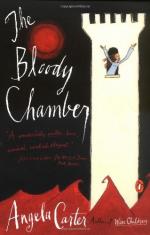|
This section contains 3,032 words (approx. 11 pages at 300 words per page) |

|
SOURCE: "All You Need is Love: Angela Carter's Novel of Sixties Sex and Sensibility," in The Review of Contemporary Fiction, Vol. 14, No. 3, Fall, 1994, pp. 24-29.
In the following essay, Smith describes Angela Carter's novel Love as a "postmodern pastiche" of the eighteenth-century novel of sensibility.
In her afterword to the revised 1987 edition of Love, Angela Carter reveals the obscure source of inspiration for her narrative of sixties sexual misadventure: "I first got the idea for Love, from Benjamin Constant's . . . novel of sensibility, Adolphe; I was seized with the desire to write a kind of modern-day, demotic version . . . although I doubt anybody could spot the resemblance."1 If this connection had eluded Carter's audience, surely it is understandable. A phenomenon of the late eighteenth and early nineteenth centuries, the novel of sensibility had long fallen from vogue and reappeared, revenant-like, only in its latter-day guise of popular romance. Yet, as...
|
This section contains 3,032 words (approx. 11 pages at 300 words per page) |

|


